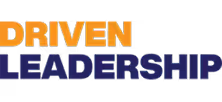Leadership Coaching Programs in Seattle, WA


Leadership Training Leadership Coaching Programs in Seattle, WA
Effective leadership in Seattle requires more than theory. Whether you lead a technology team in South Lake Union, a nonprofit in Capitol Hill, a healthcare unit near UW Medical Center, or a manufacturing floor in the Puget Sound corridor, practical, measurable leadership development moves organizations forward. Our leadership coaching programs combine proven coaching frameworks, focused goal-setting, and rigorous progress tracking into combined coaching and training packages designed for Seattle’s fast-paced, weather-influenced, and highly competitive environment.
Why Seattle leaders need targeted coaching
Seattle’s market is shaped by rapid tech growth, frequent organizational change, hybrid work models, and a culture that values continuous learning. Local challenges include:
- High talent mobility and competition for skill sets.
- Remote and hybrid team coordination across time zones and neighborhoods.
- Climate impacts on employee wellness and seasonal engagement cycles.
- Pressure to scale teams quickly while maintaining culture and accountability.
These pressures create common leadership gaps: inconsistent execution, low cross-functional alignment, unclear priorities, and leader burnout. Targeted leadership coaching and training address these issues with outcomes you can measure.
Common leadership coaching issues in Seattle
Leaders and teams typically seek help for:
- Scaling leadership capability as organizations grow from startup to enterprise.
- Improving team execution when remote and in-office dynamics conflict.
- Elevating high-potential managers to strategic leaders.
- Resolving cross-functional conflict that stalls product launches or operational initiatives.
- Sustaining culture through rapid hiring and geographic spread.
Each issue benefits from a mix of 1:1 coaching, small-group workshops, and team-focused execution programs.
Program types and coaching frameworks
Our programs pair coaching frameworks with experiential training so leaders apply learning immediately. Core offerings include:
- Individual Leadership Coaching: One-on-one coaching using a strengths-based framework plus situational leadership to accelerate personal performance.
- Team Coaching and Execution: Facilitated sessions to tighten priorities, define roles, and build repeatable execution rhythms.
- Combined Coaching and Training Packages: Blended programs that couple weekly coaching with monthly immersive workshops for skill practice and alignment.
- Advanced Leadership Tracks: Intensive cohorts (peer learning) for senior leaders focused on strategy, influence, and organizational design.
Frameworks commonly used:
- GROW for goal setting and clarity.
- Situational Leadership for tailoring approach by team needs.
- Behavioral coaching for habit change and tough conversations.
- Execution frameworks for prioritization and accountability.
Goal-setting and individualized plans
A practical goal-setting process keeps coaching measurable and relevant:
- Intake and assessment: 360 feedback, behavioral assessments, and context interviews.
- Co-created goals: Specific, measurable objectives aligned to business metrics like team retention, project delivery, or revenue outcomes.
- Micro-actions and milestones: Weekly commitments, role plays, and meeting experiments to embed new behaviors.
- Review checkpoints: Monthly progress reviews tied to outcome data and stakeholder feedback.
Seattle leaders benefit when goals explicitly link to business outcomes such as faster product cycles, improved employee engagement during darker months, or reduced time-to-hire for critical roles.
Progress tracking and measurable outcomes
Progress tracking is central to BOFU decision-making. Effective tracking includes:
- Quantitative KPIs: project delivery rate, cycle time, retention, engagement survey scores.
- Qualitative feedback: stakeholder interviews and observed behavior change.
- Coaching metrics: number of completed micro-actions, session adherence, and competency ratings.
Typical measurable gains seen in our combined programs:
- Faster decision cycles and a 20 to 40 percent improvement in project on-time delivery.
- Higher manager effectiveness scores and a 15 to 30 percent reduction in voluntary turnover in coached teams.
- Improved cross-functional alignment leading to fewer escalations and shorter meeting times.
Combined coaching and training packages
Combining coaching with facilitated training creates durable change:
- Short sprints: 8 to 12 week focused cycles for immediate challenges.
- Ongoing development: Quarterly coaching plus annual leadership summits for skill refresh and peer accountability.
- Team integration: Workshops for shared language and practices, followed by coaching to sustain behavioral change.
These packages are configurable for Seattle organizations of all sizes and can be delivered in-person, virtually, or as hybrid experiences that respect local commuting patterns and remote work preferences.
Case studies and performance gains (anonymized)
- Regional tech scale-up: After a 12-week combined program for engineering managers, product delivery predictability improved by 35 percent and manager promotion readiness increased significantly.
- Healthcare unit in central Seattle: A leadership coaching series focused on psychological safety and communication reduced staff turnover by 22 percent within six months and improved patient handoff reliability.
- Nonprofit coalition: Team execution coaching aligned partners around shared KPIs, resulting in a 40 percent increase in program throughput without additional headcount.
These examples show the practical ROI from focused leadership coaching that aligns with organizational goals.
Long-term benefits and maintenance
Sustained leadership development produces:
- A pipeline of leaders ready to scale with the organization.
- Stronger cross-functional collaboration during rapid pivots.
- Increased resilience among leaders facing Seattle-specific stressors like remote/hybrid transitions and seasonal morale shifts.
- Clearer accountability and improved execution that supports profitability and mission impact.
Maintenance strategies include quarterly check-ins, micro-learning modules, and leader peer groups to keep skills fresh.
Final notes on fit and outcomes
Choosing a leadership coaching program in Seattle should be about measurable improvement and cultural fit. Look for programs that combine assessment-driven coaching, experiential training, and transparent progress tracking. When coaching is aligned to business metrics and reinforced through team practices, leaders and organizations realize meaningful, sustainable performance gains.

